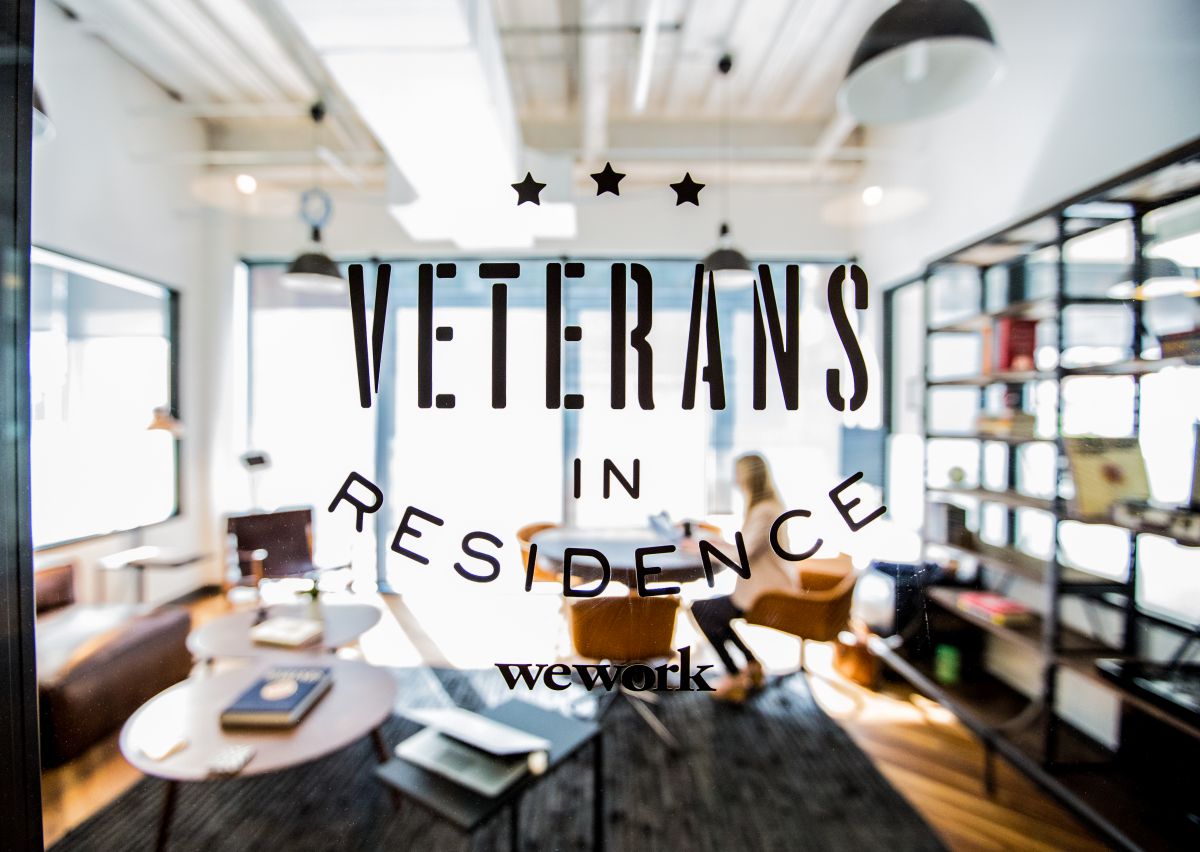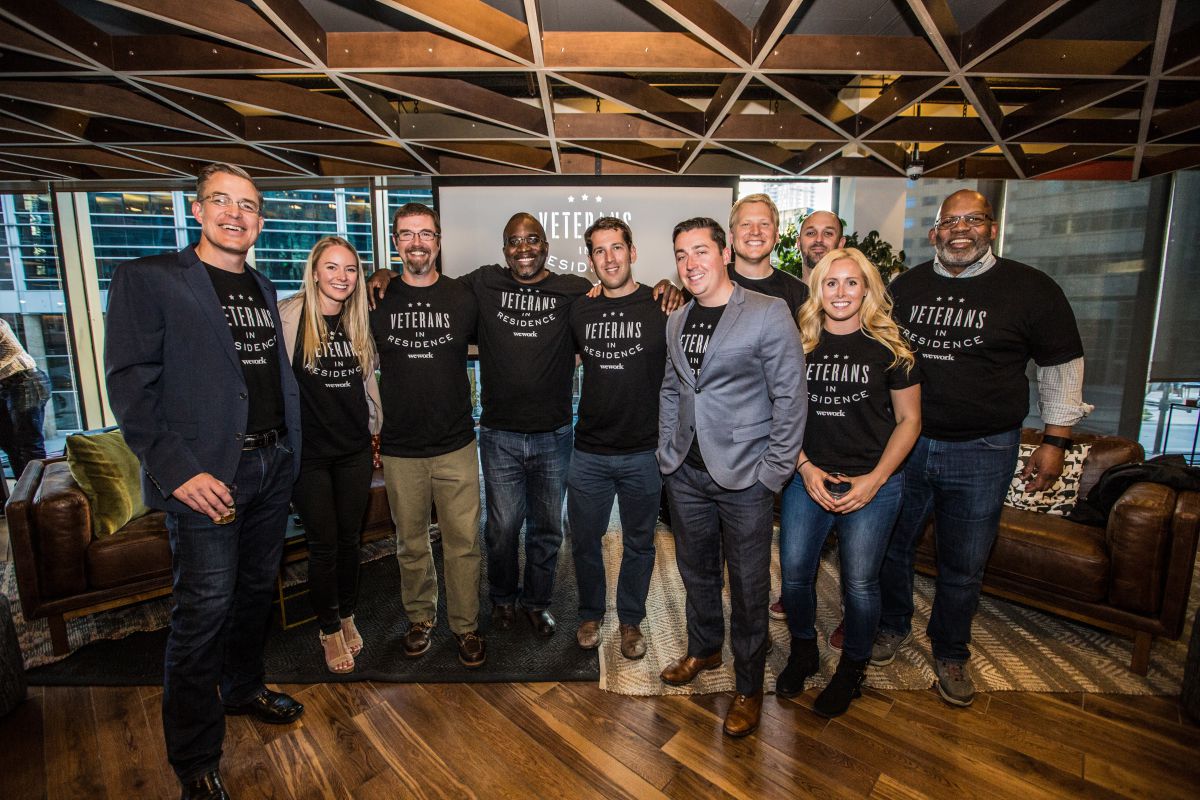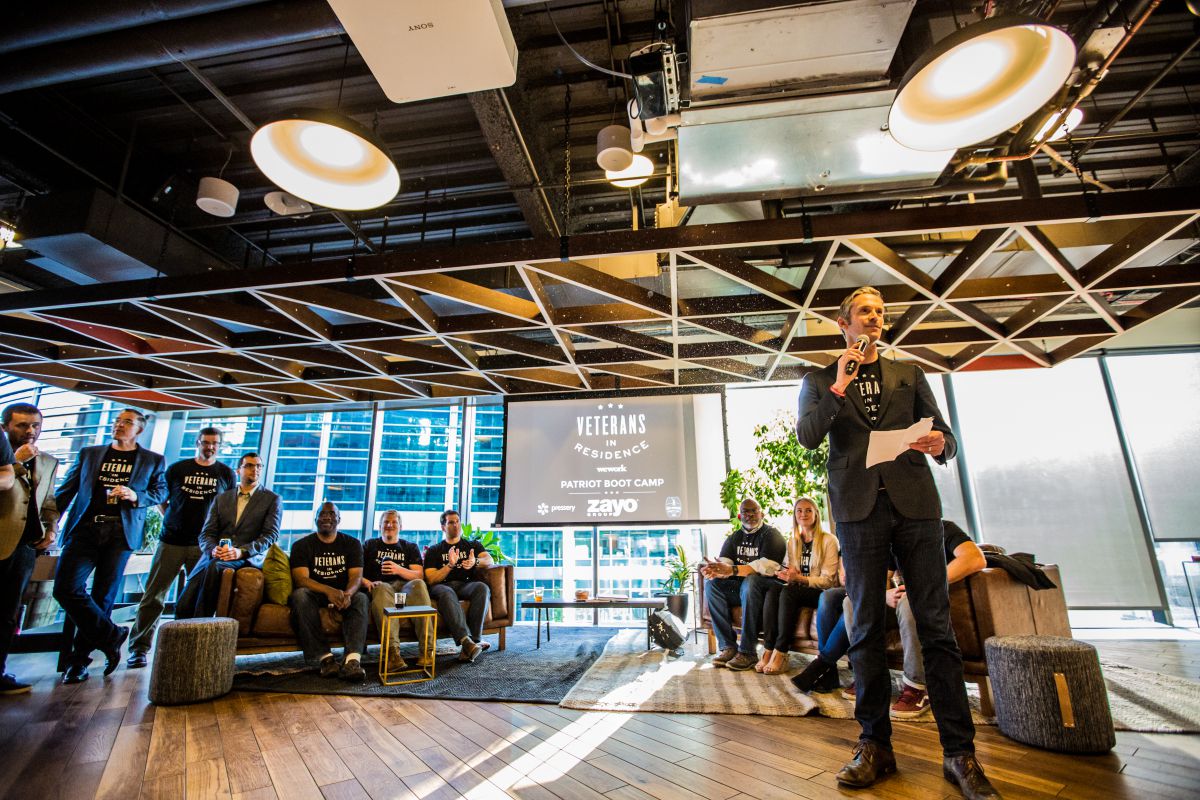
Patriot Boot Camp has made a name for itself in Colorado — and throughout the startup community — through its commitment to providing active-duty military members, veterans and military spouses with the education, resources and community needed to be successful technology entrepreneurs.
Since launching its intensive, three-day programs in 2012, PBC has organized 10 events in eight cities, graduated over 600 entrepreneurs, and rallied more than 300 mentors and volunteers in support of veteran entrepreneurship.
Now, PBC is partnering with community workspace provider WeWork to expand its efforts. Earlier this month, the organizations introduced the first cohort of Veterans in Residence, a three-month accelerator program designed to pick up where PBC leaves off by providing veterans with free workspace, educational programs, one-on-one mentorship and integration into the Colorado tech community.

What really makes this program special isn’t that it’s helping veterans. (More than 45,000 nonprofits for veterans and their families are registered with the IRS.) What makes Veterans in Residence special is the collaborative and inclusive nature of the program.
“Truthfully, I think the world could do with a lot fewer veterans programs — and more that actually integrate veterans into economic communities and opportunities,” said Josh Anderson, a Marine Corps veteran and COO of Patriot Boot Camp. “Far too many veterans organizations serve to insulate veterans, to perpetuate the wrong narratives and to contain veterans in closed networks among one another.”
Veterans in Residence participants said veterans face many challenges upon coming home from deployments and trying to start a new life.
“There are all these veterans programs that don’t talk to each other,” said Veterans in Residence participant Lawrence Wagner, an Army veteran and the founder and CEO of Spark Mindset. “They don’t integrate you into the community. It’s just this herky-jerky kind of feeling where you’re like, ‘How do I get involved in the community?’ You still want to be around veterans, but once you get out you want to expand your life. You want to become more. You have goals and aspirations that you want to achieve … and it’s hard when the structure doesn’t allow you to grow.”
Fellow Veterans in Residence participant Matt Colvin, an Air Force veteran and the co-founder of CauseEngine, said veterans don’t want to be “siloed.”
“We’ve done our job, but that’s not necessarily the moniker that we hang on ourselves,” Colvin said. “We’re business people who just happen to be veterans — not the other way around.”

Veterans in Residence plans to break down silos by collaborating with local entrepreneurs, tech leaders and mentors who can help participants develop their business skills while leveraging the skills they already have to better serve the business community.
“I think this program is as much about what veterans can do for the Colorado business community as it is about what the Colorado business community can do for veterans,” said Veterans in Residence participant Bryan Sparling, a retired Army colonel and longtime business consultant. “So often you hear the word ‘veteran’ and you think PTSD, damaged goods, somebody that needs a handout. But for the vast majority of veterans, the great common denominator is that they are beneficiaries of the greatest leadership development organization in the world.”
Anderson hopes the program will push the conversation beyond simply the qualities veterans bring to the table to the assumptions others have about them.
“To me it feels more important to discuss the notion that our cultural treatment of ‘the veterans issue’ is self-fulfilling and self-perpetuating,” Anderson said. “I believe the solution is more economic than it is medical; it requires shifting perception from veteran-as-victim to veteran-as-tested; it requires less access to prescriptions and more access to jobs and capital. And, frankly, it requires greater thoughtfulness, nuance, give-a-shit quotient and creativity than I believe the U.S. government is capable (of offering), so we have to take some responsibility for changing the narrative as a culture, as economic leaders, as veterans, as individuals.”

With this mission and the support and participation of veterans and their communities, Patriot Boot Camp plans to leverage WeWork’s global network to expand into other cities. Having launched programs this month in Denver and Austin, PBC plans to explore how in-depth entrepreneurial programs like Veterans in Residence can create “a new narrative and a new path that serves veterans in a more productive, positive way,” Anderson said.
“We need to stop looking at the human effects of conflict as terminal,” he said. “In the words of Sebastian Junger, from his book “Tribe” —which in many ways served as manifesto and inspiration for Veterans in Residence — ‘Humans don’t mind hardship, in fact they thrive on it; what they mind is not feeling necessary. Modern society has perfected the art of making people not feel necessary.’
We need to make veterans feel necessary, respected, valued — and productive. They deserve that. That’s what I hope this program accomplishes.”
Photos via Patriot Boot Camp.
Have a tip or know of a company worth covering? Email us.






